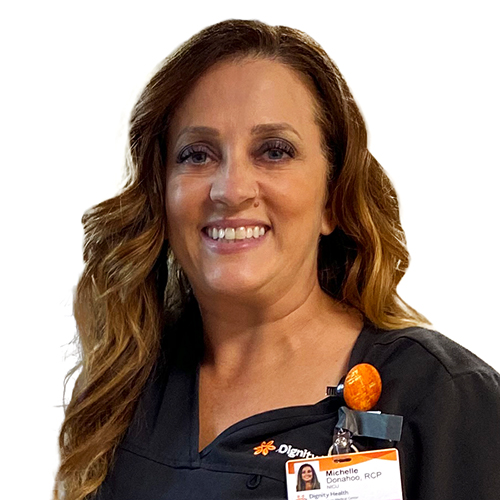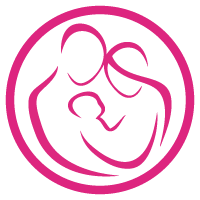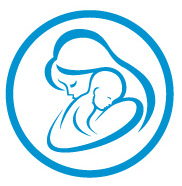 Neonatology Online Course(s) & Continuing Education
Neonatology Online Course(s) & Continuing Education
Access the latest clinical skills and research for Neonatology for Maternal Health professional training. These Neonatology online courses provide practice-changing skills and valuable perspectives from leading global experts. This Neonatology education has been accredited for a variety of CEUs / CERPs and can be accessed on-demand, at your own pace.
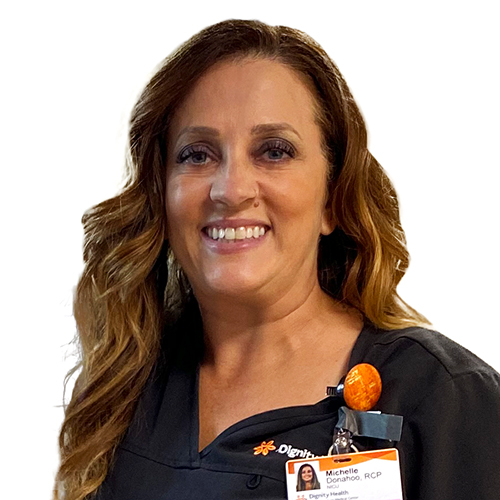

Michelle has been a respiratory therapist for 23 years. Working in the neonatal population for approximately 22 of those years, she was the Neonatal Respiratory Care Specialist for a large organization, where she enjoyed bringing evidenced based practice to the bedside.
Appropriate care of artificial airways is an important part of clinical care in the NICU. This presentation will demonstrate how to provide ongoing care to newborns with an endotracheal tube or a tracheostomy tube. Indications, and contraindications of endotracheal tube management. A variety of securing methods will be reviewed for endotracheal tubes. A review of a variety of chronic conditions that may warrant a tracheostomy tube. The procedure for securing a tracheostomy tube will be reviewed. Cleaning and maintaining a tracheostomy will be discussed. Education with the staff caring for newborns with an artificial airway will be reviewed along with parent education.
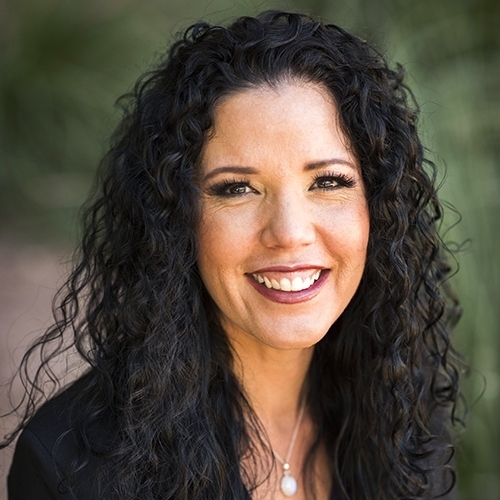
Assisting Late Preterm Dyads Achieve Breastfeeding/Chestfeeding Success

Angela Lober has been an educator and clinician for over 19 years. She has been an Internationally Board Certified Lactation Consultant since 2005 providing evidence-based care within an academic medical center and within her community. Angela is the Director of the Arizona State University Lactation Education Programs offering on-line and academic elective on breastfeeding and lactation. She completed her PhD at Arizona State University's College of Nursing and Healthcare Innovation focused on the breastfeeding complexities of late preterm infants.
Late preterm infants struggle with feeding challenges. Due to the oscillating nature of breastfeeding progress in the late preterm population coupled with the innate issues of prematurity, families need support to navigate waters toward breastfeeding success. A model for evidence-based education and breastfeeding assessment will be presented to support infant development and empower mothers to achieve their breastfeeding goals.

Attachment and Neurodevelopmental Outcomes in Premature Infants: The Role of Interpersonal Neurobiology in the NICU

Kara Wahlin is a licensed marriage and family therapist and art therapist who resides in the Coachella Valley of southern California. After going through the preterm birth of her twin sons William and Elliott, and the subsequent loss of William, Kara made the promise to dedicate her clinical work to helping other families coping with the trauma and loss often wrought by the NICU experience. She developed the website NICU Healing in order to provide free information, couples and individual therapy, and online support to NICU families. Kara uses strengths-based, neuroloscientifically-informed and creative practices to empower her clients to picking up the pieces of their lives and moving forward with their new life stories. She speaks frequently at conferences discussing best clinical practices, and writes for her own as well as other blogs about new ways of coping with mental health issues that come up after traumatic experiences. In her free time, Kara and her son Elliott are art machines and expert hikers, and also spend their time at home with their menagerie of small animals.
Evidence has shown that attachment between a primary caregiver and their preterm infant can change the neurodevelopmental outcomes for the infant later in life. Attachment can be seen as a living organism between parent/caregiver and child, and with encouraged development and growth, the attachment relationship can have profound effects, even in the context of the most difficult of circumstances and medical diagnoses. The more NICU caregivers know how to encourage attachment, the likelier a family system will need less medical/psychological intervention after discharge from the hospital.

Automated Control of Inspired Oxygen…. Is it the Future of Oxygen Therapy in Preterm Infants?

Dr. Souvik Mitra is an Assistant Professor and neonatologist at the Division of Neonatal Perinatal Medicine, Department of Pediatrics, Dalhousie University, Halifax, Canada. He completed his medical school and pediatric residency from Calcutta Medical College, India. Dr Mitra went on to complete his neonatal fellowship at McMaster University, Hamilton, Canada and is currently pursuing his Masters in Clinical Epidemiology from the same institution. Cerebral oxygenation and cardiovascular physiology in premature infants are his primary clinical research interests. He also has extensive epidemiological research experience having published a number of systematic reviews and meta-analyses. He has shared his research through webinars across Canada and the United States as well as through platform presentations at various international conferences. He has special expertise in targeted neonatal echocardiography and is a member of the Pan-American Hemodynamics (TnECHO) Collaborative.
There is increasing evidence that optimizing time spent within targeted oxygen saturation limits improves clinical outcomes in premature infants. Recent randomized clinical trials show that preterm infants who spend more time above the target saturation range tend to have increased retinopathy of prematurity and bronchopulmonary dysplasia, while those infants who spend a considerable time below the target range tend to have more necrotizing enterocolitis and death. Hence it is imperative that we find out the best way to optimize oxygen saturation targeting in preterm infants. Education programs followed by implementation of oxygen titration guidelines for the bedside nursing staff have been shown to have some benefit. However, the ever-increasing NICU workload often makes it impossible for nurses to adhere to strict oxygen titration guidelines. Automated control of inspired oxygen may provide some respite to the nurses as this recent technology has not only been shown to reduce nursing workload but also to improve oxygen saturation targeting in preterm infants. This is an exciting new innovation which, with more refinement in technology and practice, has the potential of becoming the standard of NICU care in future.

View Details / Enroll

Back to Basics for Cleft Lip and Palate: An Overview of Strategies to Support Lactation in the Neonatal Period and Beyond

Alice Farrow is an IBCLC, writer, speaker, and infant feeding and health equity advocate. Parent of a child born with a cleft lip and palate, Alice has worked extensively, since 2006, with parents, parent organisations, cleft teams health providers and lactation specialists in order to increase awareness of the specific challenges faced by cleft affected infants and their families and to imprve access to adequate lactation support for this community.
Currently based in Rome, Italy, Alice advocates for, and teaches regularly on, the topic of breastfeeding/chestfeeding with an oral cleft via presentations, courses, articles, booklets and handouts and supports parents and professionals wordwide via their Cleft Lip and Palate Breastfeeding website and associated online support group, and in person and distance consultations.
A common misconception among care providers and families is that babies born with an oral cleft cannot breastfeed/chestfeed. This presentation corrects that misconception by exploring cleft types and their expected breastfeeding/chestfeeding outcomes and sharing tools that lactation specialists can use to more effectively support parents when their baby is born with a cleft lip/palate. In particular, during the neonatal period, the lactation specialist is uniquely positioned to support parents to make informed decisions about their feeding choices and create a going home care plan to help them achieve their breastfeeding/chestfeeding goals in the long term.

View Details / Enroll

View Details / Enroll

Best Practices in Prenatal and Perinatal Psychology and Somatic Health for Optimal Birth Outcomes

Kate White is and award-winning craniosacral and massage therapist, prenatal and early childhood educator. She is trained in somatic therapies, prenatal and perinatal health, lactation, brain development, infant mental health, and has specialized in mother-baby dyad care using somatic prevention and trauma healing approaches for nearly 20 years. She is a mother of two children, holds a BA and MA in Communication, is a Registered Craniosacral Therapist in the Biodynamic Craniosacral method and a Somatic Experiencing® Practitioner. Her work combines somatic therapy with brain development to help give families with babies and small children the best possible start. She is Founding Director of Education for the Association for Prenatal and Perinatal Psychology and Health from 2013 – 2018 where she managed a large online educational program for professionals. She currently co-directs this program, administering an online program for parents and parent professionals, runs a private practice and offers her own seminars through the Center for Prenatal and Perinatal Programs, ppncenter.com.
Topic: Best Practices in Prenatal and Perinatal Psychology and Somatic Health for Optimal Birth Outcomes - [View Abstract]
Topic: Integration of the Science of Safety and Resilience into Perinatal Care: A 5 Step Process - [View Abstract]
Topic: The Science of Safety and Trauma Specific Recognition to Improve Birth Outcomes: What Does It Mean for the Midwife? - [View Abstract]
Topic: “It Was Right but so Wrong:” Helping Families Make Sense of Difficult Births with Trauma Sensitive and Prenatal and Perinatal Healing Approaches - [View Abstract]
Have you ever wondered about the baby’s experience of pregnancy, birth and postpartum and whether it affects birth outcomes? We now know that the mother’s experience can influence the baby in many ways. In addition, prenatal development and birth depend upon a sequence that becomes a pattern in the body. Somatic or body therapies to support healing from birth trauma are becoming more prevalent. Come hear about prenatal and perinatal psychology and health, or the exploration of a baby’s experience of conception, pregnancy and birth and how it has lifelong implications. This talk will outline several best practices for clinicians in perinatal settings of all kinds based on this perspective with a focus on education and somatic tools to ensure high prevalence of application. Current research, education and training programs will be cited, and case studies provided as time allows.

Best Practices to Support Breastfeeding in Neonatal Intensive Care

Kathie, an Associate Professor of Pediatrics, University of CT School of Medicine, is a neonatologist, member of the Human Milk Research Center at CT Children’s Medical Center, Hartford, CT, and graduated from Cornell University and Cornell University School of Medicine, completing postgraduate training in Pediatrics, Pediatric Nephrology and Neonatology at Children’s National Medical Center, George Washington University, Washington DC USA. In the inaugural group of physicians designated “Fellow of the Academy of Breastfeeding Medicine” (FABM), she served twelve years on the ABM Board of Directors, chaired the Protocol committee, and chaired the United States Breastfeeding Committee 2013-14. Elected to the International Lactation Consultant Association Board July 2014-17, she is a member of the American Academy of Pediatrics Section on Breastfeeding, serves as the AAP Connecticut Chapter Breastfeeding Coordinator since 2000, and Chairs the Baby-Friendly USA NICU Initiative. Initially founding Medical Director of the New England Mother's Milk Bank she is currently co-Medical Director of the Mothers' Milk Bank of the Western Great Lakes and has authored many chapters, monographs, peer-reviewed manuscripts, and ABM protocols. Her research centers on breastfeeding and the use of human milk in the NICU, cup feeding, donor milk/donor milk banking, the Baby-Friendly NICU, global maternal-child issues and the education of medical professionals. Lecturing extensively in the United States and abroad, she resides in Glastonbury, CT, her greatest accomplishment her 4 amazing young adults, 19 to 29 years of age.
Topic: The Science and Significance of Human Milk and Breastfeeding in Neonatal Intensive Care - [View Abstract]
There are many challenges faced by mothers, families and staff with the hospitalization of a sick or premature infant that affect lactation and breastfeeding. These include mother-infant separation, initiation and maintenance of lactation by milk expression, compromised milk production, barriers to infant-mother-parent bonding, the need for family-centered care, and the many issues related to continuity of care both during the hospitalization and between facilities and caregivers. We will explore current evidence concerning the support of mothers’ and families’ choice to transition from milk expression to breastfeeding of their infants in intensive care. While our knowledge of the importance of human milk has grown immensely with respect to nutrition, acute and chronic disease risk reduction and prevention, neurodevelopment, physiology, and the intestinal microbiome among others, there remains a gap in the translation of this knowledge into the practice of transition of human milk feeding to breastfeeding in many countries, regions and individual intensive care units/wards. It can be done—we will explore the evidence for how!
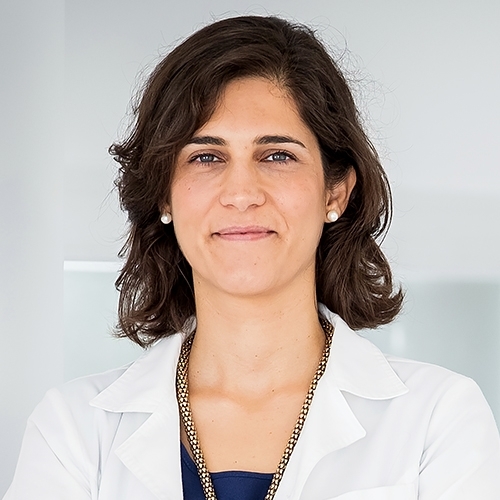

Dr. Joana Torres received her medical degree from the University of Coimbra, Portugal, and completed her fellowship in Gastroenterology at the Hospital Center of Coimbra, Portugal. She spent 3 years at Icahn School of Medicine at Mount Sinai, NY, USA working on research projects in the field of IBD. She is currently working in Hospital Beatriz Ângelo, Loures, Portugal as a Gastroenterology Assistant and she is Adjunct Assistant Professor at Mount Sinai, NY. She is the President of the Scientific Committee of the Portuguese IBD Group and an active member of the European Crohn and Colitis Guideline committee (GuiCom). Her research focuses on populations at risk for developing inflammatory bowel disease with the goal of better understanding events taking place before the disease is diagnosed.
Inflammatory Bowel Disease is a chronic immune-mediated disease with increasing epidemiology. IBD results from a complex relationship between genetic susceptibility, environmental factors and intestinal microbiota, resulting in a self-perpetuating abnormal mucosal immune response. Increasing epidemiological evidence suggests that early life events and childhood exposures may be important for determining the risk of IBD. One of the most important early life exposures is diet: breastfeeding (BF) or formula feeding may impact microbiome development, which in turn may modulate immune system maturation. In this presentation I will review the benefits of BF, the evidence suggesting the role of BF in IBD, the impact of BF on the developing microbiome, and debate the issues of breastfeeding in patients with IBD.

View Details / Enroll
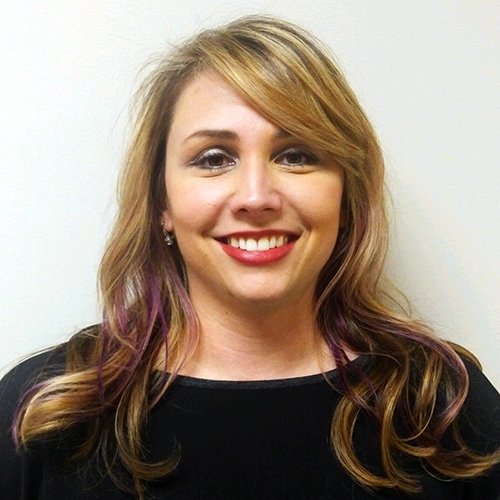
Breastfeeding and Neonatal Abstinence Syndrome

Amber Valentine is a Speech-Language Pathologist who graduated from the University of Kentucky with her MS in Communication Disorders. She is a Board Certified Specialist in Swallowing and Swallowing Disorders and an International Board Certified Lactation Consultant, as well as a Certified Neonatal Therapist (CNT). She worked for Baptist Health Systems, Inc for 8 years before moving to Florida where she worked for Wolfsons Children’s Hospital and Mayo Florida. She is now back in Kentucky working for Baptist Health Lexington. She has experience in adults and pediatrics with feeding and swallowing difficulties including: bedside swallow evaluations, Modified Barium Swallow studies, FEES, and pediatric feeding evaluations including NICU. She has experience with head and neck cancer patient including evaluation and treatment of swallowing difficulties, PMV use, and voice after total laryngectomy including TEP. She has provided guest lectures for the University of Kentucky, Eastern Kentucky University, and the University of Louisville on feeding and swallowing topics. She has presented at the hospital, local, state, national, and international levels on pediatric feeding/swallowing and breastfeeding.
Topic: Breastfeeding Medically Complex Infants in the Neonatal ICU - [View Abstract]
Topic: Building a Successful Breastfeeding Program in the NICU: Challenges and Practical Solutions - [View Abstract]
This presentation is designed to discuss the role of feeding therapy, breastfeeding, and family dynamics with infants with neonatal abstinence syndrome. These baby/family dynamics can be complex situations and feeding difficulties are extremely common. Breastfeeding education/information can be implemented prior to birth along with other education for families to promote more infant/family bonding and reduce stress of being born in substance exposure. Breastfeeding dramatically reduces stress signs in infants exposed to substances neonatally. Working together as an interdisciplinary team, we can set these families up for more successful feeding opportunities and decreased stress in developmental care.

View Details / Enroll

Breastfeeding Medically Complex Infants in the Neonatal ICU

Amber Valentine is a Speech-Language Pathologist who graduated from the University of Kentucky with her MS in Communication Disorders. She is a Board Certified Specialist in Swallowing and Swallowing Disorders and an International Board Certified Lactation Consultant, as well as a Certified Neonatal Therapist (CNT). She worked for Baptist Health Systems, Inc for 8 years before moving to Florida where she worked for Wolfsons Children’s Hospital and Mayo Florida. She is now back in Kentucky working for Baptist Health Lexington. She has experience in adults and pediatrics with feeding and swallowing difficulties including: bedside swallow evaluations, Modified Barium Swallow studies, FEES, and pediatric feeding evaluations including NICU. She has experience with head and neck cancer patient including evaluation and treatment of swallowing difficulties, PMV use, and voice after total laryngectomy including TEP. She has provided guest lectures for the University of Kentucky, Eastern Kentucky University, and the University of Louisville on feeding and swallowing topics. She has presented at the hospital, local, state, national, and international levels on pediatric feeding/swallowing and breastfeeding.
Topic: Breastfeeding Medically Complex Infants in the Neonatal ICU - [View Abstract]
Topic: Building a Successful Breastfeeding Program in the NICU: Challenges and Practical Solutions - [View Abstract]
Feeding is the most complex task of infancy, even in term babies with no complications. There are many diagnoses, conditions, syndromes, and co-morbidities that can impact feeding in neonates and infants. This talk will briefly highlight many of those, but we will focus on three specific populations of interest –Cleft lip and palate, Infants of Diabetic Mothers, and Down Syndrome. We will discuss the specific implications these conditions can have on feeding, why these infants may have difficulty, and the classic symptoms one could expect to see. The differences between delayed and disordered feeding will also be addressed. Strategies and adaptions for both breast and bottle feeding will be discussed. Positioning, nipple flow rate, and external strategies will be explained. Case studies will be shared at the end of the presentation.

View Details / Enroll
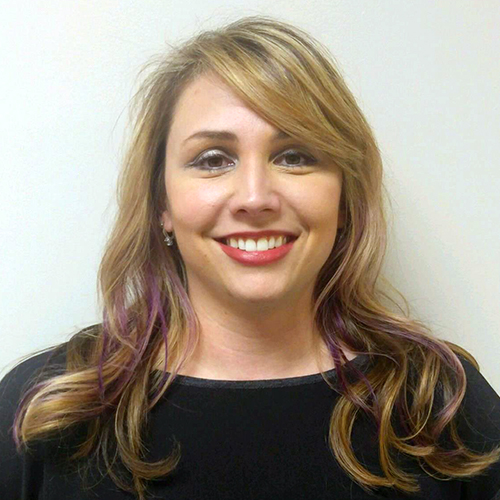
View Details / Enroll



